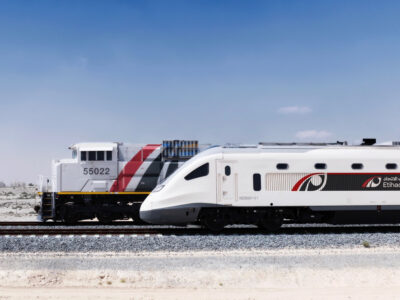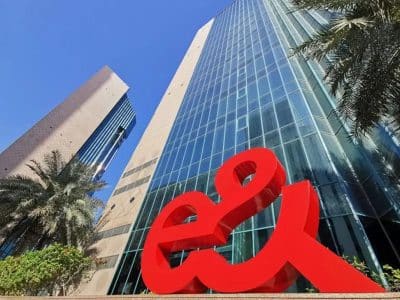The UAE’s real estate sector is highly dynamic and a key contributor to the economy. In Dubai alone, 14.4 percent of GDP is derived from real estate and construction. Last year, sales accounted for more than AED411 billion ($111 billion), which was a 56 percent increase on 2022 (according to Dubai Statistics Center). Abu Dhabi recorded AED87 billion ($23.7 billion) in total transactions, with buying and selling activity up 159.5 percent on the previous year.
The UAE’s regulatory authorities have well-established processes to protect developers, buyers and sellers, but the innovations presented by digital assets could fundamentally transform how real estate transactions take place and how ownership is demonstrated, held and transferred. There is an enormous opportunity for the UAE, as a forward-thinking and visionary nation, to spur new interest in real estate from both domestic and foreign buyers, through the power of real estate tokenization.
Background on tokenization and how real estate is tokenized
In theory, the process of transforming an asset into a digital token is relatively straightforward. Essentially, the ownership rights of an individual property or group of tangible real estate assets, are structured so that they can be held and transferred digitally and governed through smart contracts.
A tokenization platform issues digital tokens, which are minted and recorded on a blockchain network (an immutable ledger). After going through typical KYC (know your customer) and AML (anti-money laundering) checks to comply with regulations, investors may then buy, sell and hold those tokens.
The benefits of tokenization
Firstly, the tokenization of the industry ensures transparency of transactions. It is easy to determine the exchange of ownership rights of these real world assets, with all transactions logged. Everybody from regulators to investors can access relevant information in real-time.
Secondly, the speed of processes and liquidity enabled by tokenization can ensure that transactions become faster and more efficient. Buy and sell costs can also be significantly reduced and investors have more flexibility and transferability of assets. These factors are important in building trust amongst both domestic and foreign buyers.
Potentially, the UAE could increase the size of its prospective investor base for the sector, as international investors look for geopolitically safe places to diversify their portfolios. But it is not just the professional real estate investor who stands to benefit from digital tokenization of real estate.

Fractional ownership of properties, where a single property can be divided to have multiple owners, is not new to the UAE. Businesses like Stake and SmartCrowd have opened the door to fractional investment in real estate, utilising special purpose vehicles (SPVs) to offer shares in properties.
However, tokenization has the potential to create faster, more transparent, more cost effective processes. In the case of SPVs, decisions on the management and sale of assets are voted on by shareholders, but tokenization opens up the possibility of genuine secondary market possibilities, where fractional amounts of property can be traded easily.
The challenges for the tokenization of real estate in the UAE
At this stage there are still some regulatory complexities, including hurdles to overcome between the authorities that oversee securities and those that determine the rules for virtual assets. There is also the challenge of government centralized ownership databases and how these can be efficiently populated, managed and updated across the public registry of blockchain.
That said, the UAE has generally moved very quickly on establishing appropriate frameworks across financially innovative sectors and there can be great optimism that real world asset tokenization will soon become a practical reality. However, the barriers are still up and there needs to be clearer guidance from the UAE’s regulators.
The UAE could look at the approach of Switzerland, a pioneering example of how blockchain technology can transform a traditionally illiquid asset into a digital, tokenized and liquid real estate investment.
The Swiss Financial Market Supervisory Authority (FINMA) was the first to grant a securities token exchange licence, to operate tokenized asset trading on distributed ledger technologies for retail investors. Essentially, this allows anyone to trade tokens of real-world assets in a regulated environment, which has propelled greater interest in Swiss real estate.

Another area of concern is in building the right digital infrastructure for real estate tokenization. However, this is where our own expertise in building technical infrastructure comes in and can rapidly facilitate implementation and adoption here in the UAE.
Perhaps most pressingly, is a need for further education and knowledge sharing around real estate tokenization. Many developers are aware of the potential, but lack the necessary expertise, technology and oversight to manage blockchain investments.
The future of real estate tokens in the UAE
The UAE’s Digital Government Strategy 2025 clearly outlines a vision towards creating digital efficiencies across sectors. Real estate tokenization embodies these values, harnessing the power of blockchain and digital assets to improve the sector. Tokenization provides greater accessibility and inclusivity to real estate investment, and it could unlock further economic prosperity for the Emirates, its developers and investors.









